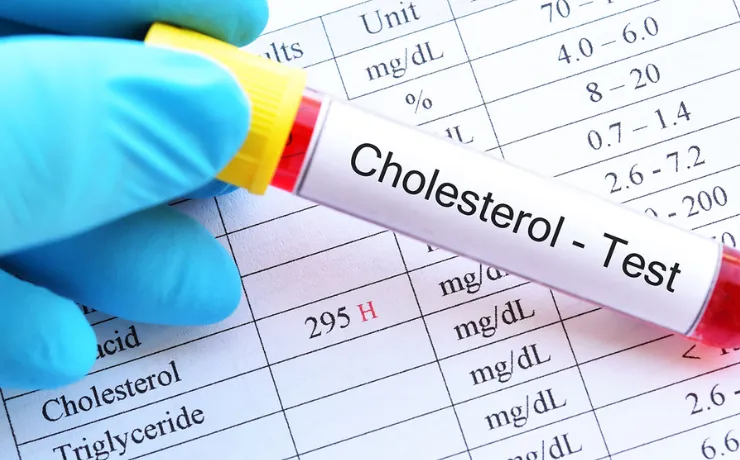Cholesterol FAQ – What Readers Are Searching For and What You Should Know

Cholesterol is a topic many patients have questions about, especially when it comes to heart health and medications. At Central Pharmacy, we help patients understand what cholesterol is, why it matters, and how pharmacy support can help manage it.
What is Cholesterol?
Cholesterol is a waxy substance found in your blood. Your body needs it to build cells and produce certain hormones. However, too much cholesterol, especially LDL (bad cholesterol), can increase the risk of heart disease and stroke. Meanwhile, HDL (good cholesterol) helps remove cholesterol from the bloodstream, reducing risk.
Common Questions About Cholesterol
Here are some of the most frequently asked questions patients have about cholesterol:
1. How Do I Know if My Cholesterol is High?
High cholesterol usually has no obvious symptoms. The only way to know is through a blood test, which measures total cholesterol, LDL, HDL, and triglycerides. Regular testing is important, especially for adults over 20 or those with family history of heart disease.
2. What Factors Affect Cholesterol Levels?
Cholesterol levels can be influenced by:
-
Diet: Foods high in saturated fats and trans fats can raise LDL levels.
-
Physical activity: Sedentary lifestyles may lower HDL levels.
-
Weight: Excess weight can increase LDL and triglycerides.
-
Age and genetics: Cholesterol naturally rises with age, and some people inherit higher cholesterol levels.
-
Other health conditions: Diabetes, high blood pressure, and kidney disease can affect cholesterol.
3. Can Lifestyle Changes Help Manage Cholesterol?
Yes. Simple steps can make a big difference:
-
Eat a balanced diet rich in fruits, vegetables, whole grains, and lean proteins.
-
Limit processed foods, sugary drinks, and fried foods.
-
Exercise at least 150 minutes per week.
-
Maintain a healthy weight.
-
Avoid smoking, which lowers HDL (good cholesterol).
How Pharmacists Can Help
Pharmacists at Central Pharmacy are a valuable resource for managing cholesterol. They can:
-
Explain medications: Pharmacists can describe how different cholesterol medications work without mentioning specific brand names.
-
Provide guidance on proper use: Including dosage schedules, side effects, and interactions.
-
Offer lifestyle advice: Helping patients understand diet, exercise, and weight management tips that support heart health.
-
Answer questions about supplements: Some over-the-counter products can help support cholesterol management.
Cholesterol Medications – General Overview
While medication is often prescribed for high cholesterol, it’s important to use them under the guidance of your healthcare provider. Medications can:
-
Reduce LDL (bad cholesterol) to lower the risk of heart disease.
-
Increase HDL (good cholesterol) to help remove cholesterol from the bloodstream.
-
Lower triglycerides, which are another type of fat in the blood.
Pharmacists can help patients understand how these medications work and monitor for potential side effects.
Monitoring Cholesterol at Home
Patients can track progress and stay proactive with these tips:
-
Keep a record of blood test results to see trends over time.
-
Discuss results with your pharmacist or doctor.
-
Follow lifestyle and medication plans consistently.
-
Understand target levels for LDL, HDL, and triglycerides.
Regular monitoring ensures that treatment plans are effective and reduces the risk of heart complications.
When to Talk to Your Pharmacist
It’s a good idea to speak with your pharmacist if you notice:
-
You are starting a new medication and want to know interactions.
-
You need clarification on dosage or how to take cholesterol-lowering products.
-
You want advice on dietary changes or supplements.
-
You have concerns about side effects or adherence.
Pharmacists are accessible and can provide personalized guidance for managing cholesterol safely.
Summary
Cholesterol management is a combination of awareness, lifestyle, and sometimes medication. Regular testing, a healthy diet, exercise, and guidance from Central Pharmacy can help patients maintain healthy cholesterol levels and reduce the risk of heart disease.
By understanding cholesterol, asking the right questions, and following professional advice, patients can take control of their heart health.
Snippet From our blog
Explore helpful tips, expert insights, and the latest health updates on our blog. Find practical advice and resources to support a healthier life.